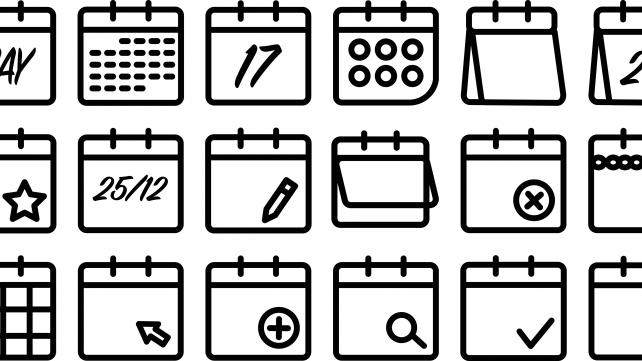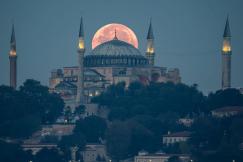
Sha’ban is the eight month on the Islamic calendar. Although it is not classified as one of the sacred months, it has both spiritual and historic prominence that is often not reflected upon by the collective Ummah.
The word “Sha’ban” derives from Arabic root words that can mean branching or separating. Islamic scholars and historians have examined the meaning of this word in relation to the culture of the desert Arabs during the age of Prophet Muhammad, God’s peace and blessings be upon him, and reported the following.
- Sha’ban may be so named because it separates the sacred month of Rajab and the sacred month of Ramadan.
- In Sha’ban the people would go in search of water.
- During this month, the Arabs would disperse throughout the land and pillage and fight to make up for time since these activities were prohibited in Rajab and Ramadan.
- The word Sha’ban can also refer to a plant – indicating that the plants would spread out their branches in this month.
The manner in which Sha’ban falls upon us causes it to be referred to as the neglected month, since it comes between two very significant events – Isra and Miraj in Rajab and the revelation of the Quran and fasting in the month of Ramadan. Sha’ban offers an opportunity to increase our Ibada (worship) as well as reflect on the historical events that happened during this month that shaped Islam.
Miraculous Events reported in Quran
The splitting of the moon was a momentous event during the Prophetic age and was a demonstration of not only the power and magnificence of Allah, The Most High, but it also quelled the doubts of the polytheists who lived in Makkah at that time. In the Quran we read:
Has come near the hour and has split the moon
And if they see a sign, they turn away and say 'magic’ (sih’run)
(Quran 55:1-2)
The Companions of Prophet Muhammad, peace and blessings be upon him, reported on this event as well. Anas bin Malik narrated, “The people of Makkah asked Allah’s Messenger to show them a miracle. So he showed them the moon split in two halves between which they saw the Hira’ mountain [the Mountain of Light]” (Bukhari)
Qibla
Historical interpretations from scholars in Islam estimate that in the second year of Hijra, during the middle of the month of Sha’ban, it was revealed to the Prophet to redirect the believers from praying toward Masjid Al Aqsa in Jerusalem to Makkah. At that time, Masjid Al-Aqsa had been the Qibla for the growing Muslim community for thirteen years. The reorientation of the direction of the believers to Makkah continues to be a practice observed by all Muslims this day.
“We have certainly seen the turning of your face, [O Prophet (saw)], toward the heaven, and We will surely turn you to a Qiblah with which you will be pleased. So turn your face toward al-Masjid al-Haram…”
(Quran 2:144)
Fasting
Sha’ban is a time that the believers begin to increase their preparation for Ramadan. This includes fasting, which offers opportunities for us to gain extra reward with our Ibada (worship). Prophet Muhammad, peace and blessings be upon him, was reported to have fasted more days in the month of Sha’ban than at any other month outside of Ramadan, thus setting the example and precedence for the Ummah today to fast during this month. Evidence of this tradition was reported by his wife, Aisha, may Allah be pleased with her:
“The Messenger of Allah, peace and blessings be upon him, would fast until we said he will never break his fast, and he did not fast until we said he would never fast. I did not see the Prophet complete an entire month of fasting except for Ramadan, and I did not see him complete more voluntary fasts than in the month of Sha’ban” (Bukhari, Muslim).
The 15th night of Sha’ban
For many Muslims, the 15th night of Sha’ban, also known as Laylat al-Bara’ah, Laylat an-Nisf min Sha’ban, and Shab-e-Barat, is a special time. The importance of the 15th night of Sha’ban is not agreed upon by Muslim scholars. However, some Muslims will observe this night with prayers and then fast the next day, while other Muslims affirm that this practice is an innovation that is not from the Sunnah.
There are sound Hadith agreed upon by many scholars for the believers to observe a fast on the 13th, 14th and 15th of each lunar month. The Prophet was known and reported in Hadith to have fasted many days during the month of Sha’ban, with no specification of a particular day.
There are Hadith ranging from sound (Sahih), good (Hassan) to weak (Dha’if) that report that Rasul Allah, peace be upon him, referred to the 15th night of the month of Sha’ban as a night of forgiveness. But this is not an agreed upon conclusion. In addition, most scholars agree that the night of 15th Sha’ban is not mentioned in the Quran.
Preparation
Most Muslims agree that it is during the month of Sha’ban that preparations for Ramadan begin. This may be a mental preparedness in anticipation of the physical readiness for Ramadan, of arranging work and school schedules to accommodate late night prayers and other forms of increased Ibada.




Add new comment